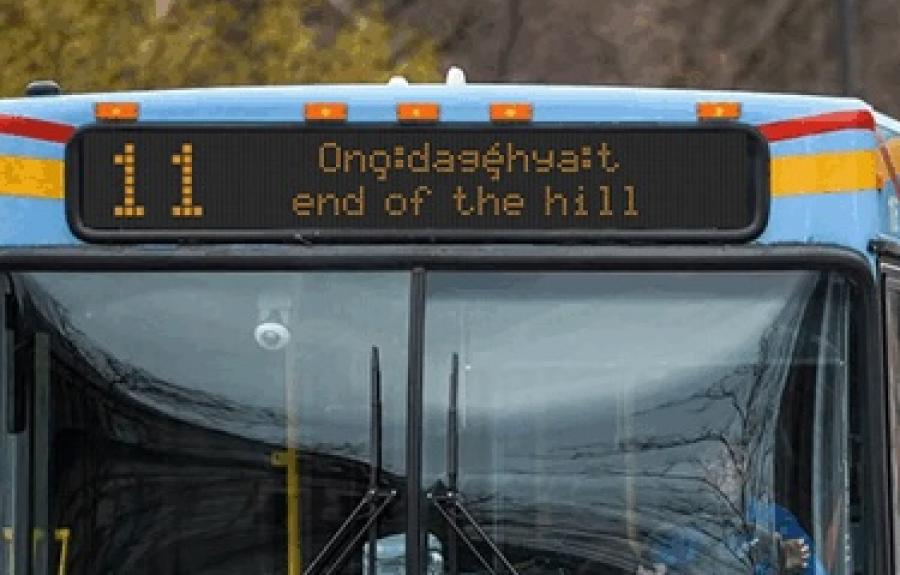The lands and waters of the Finger Lakes have been inscribed and naturalized with colonial names, making them appear, to most of us, as the only possible designations for our places. But what alternative rural and urban configurations have these lands undergone, what other names have shaped these spaces, and how can we experience the landscape through other languages that imbue them with other meanings?
This project draws inspiration from a speculative future in which TCAT, not just as a transit system but as an information platform, commutes between displaying current official names on its destination signals and those in Gayogohó:nǫˀ with their meaning in English. It raised key questions, orientating this project: How can we balance the urgency of revitalizing the Gayogohó:nǫˀ language with the need for clear public communication? In what other ways might the physical and digital public information infrastructures support the performative act of naming? How can we provide context to words rather than merely displaying them, given the Gayogohó:nǫˀ language’s deeply descriptive nature and its profound ties to Tompkins County’s lands and waters?
Through participatory activities, a public panel and an exhibition, Mobilizing Naming in Tompkins County will bring together focus groups from TCAT, the Gayogohó:nǫˀ Learning Project, Tompkins County and Ithaca City departments, and local residents, to collectively reimagine naming in public information and communication systems in the region.
Collaborators:
- Chris Csikszentmihalyi, Associate Professor. Laura Cortés-Rico, PhD Student. Information Science.
- Amiel Bize, Assistant Professor. Anthropology.
- Stephen Henhawk, Research Associate. American Indian & Indigenous Studies.
- Gayogohó:nǫˀ Learning Project.
- Soil Factory.
- Tompkins County. Department of Planning and Sustainability.

